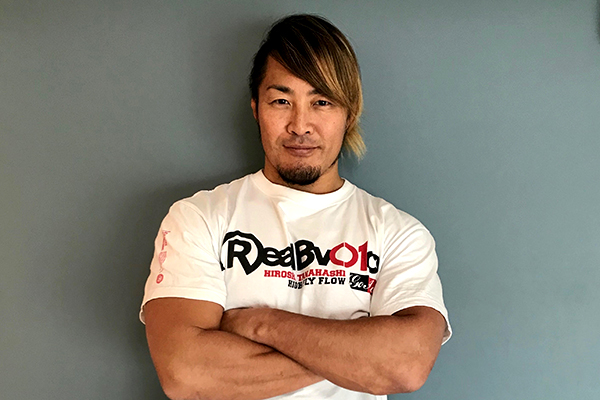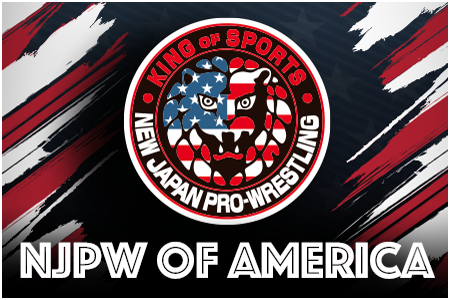Hiroshi Tanahashi’s life story can now be told in this series of autobiographical interviews, available for the first time in English!

<–Ace’s HIGH #85: Strongest Arm
Ace’s HIGH #87 Coming December 22!->
–Last time we talked about your 2011 was off to a great start with a defence in Sendai, but then on March 11, everything changed with the disaster that struck eastern Japan.
Tanahashi: It’s unreal that it’s already been over ten years now. But what happened that day was just so, so important. Even on or schedules now, Kizuna Road is there to mark us trying to connect people after the quake.
–When the earthquake happened, it was during the New Japan Cup. The actual quake happened on an off day.
Tanahashi: Back then, the office was in Shibuya. I had some work to do in there, and was on the way back when it happened. I was on my bike home, and suddenly felt a shake; all the pedestrians were panicking and taking cover, so I pulled over. I managed to get my wife on the phone, and she told me to get myself to the kids’ school.
–They would have been in elementary then, right?
Tanahashi: Right, third and first grade. The whole school was out in the grounds waiting for parents to come and pick them up. We went home together and then just watched the TV. It didn’t seem real, like ‘is this really Japan?’
–The next night’s card was cancelled, but Hamamatsu on March 13 went ahead. There was a lot of debate within the company about whether the event should happen or not.
Tanahashi: I was surprised when I first heard, to be honest. Right after the quake a lot of companies weren’t advertising on TV- the commercial breaks would all be public service announcements. I think a lot of the boys were conflicted, but I came round to thinking we should go ahead pretty quickly. I thought as long as we could do it safely, then it was the right thing to do.

–It was important to carry on.
Tanahashi: It’s the body politic, you know? The country had been injured, and it was important to rehab, and keep moving all those other body parts. To keep the blood flowing. We had to do what we could.
–Do you remember what it was like to get on the road to Hamamatsu that day?
Tanahashi: It was just so surreal. So quiet, and there was a really uncomfortable feeling on that bus from a lot of the boys. Are we doing the right thing, kind of thing.
–It was a sold out show though, and a very hot crowd. You got on the mic before the start, and encouraged everyone to come together with the wrestlers to do what they could for the people in need and there was a huge ovation.
Tanahashi: That was a cool moment. I think there were fans there that were like the wrestlers; they were wondering whether going to watch wrestling was the right thing to do. After the main event, I got on the mic again and said that wrestling was going to help the country heal. I was tagging with (Hirooki) Goto against (Shinsuke) Nakamura and Yujiro (Takahashi); Nakamura’s backstage comments were really positive as well. Both sides of that heel and babayface divide were coming together.
–Nakamura said ‘You know what I do for a living? Pro-wrestling. What good is pro-wrestling? I believe in all the good it can be’.
Tanahashi: And we did a lot of good. I was really glad in that moment that we went ahead, and I think we all were.

–You joined a lot of the wrestlers outside the building taking contributions to disaster relief as well.
Tanahashi: We did a lot around Shibuya station as well. Now ten years has gone by… Honestly support for those people in need and recovering, it’s easy to let that slip your mind when you’re wrapped up in the day to day. But whenever something happens, I think back to those days, and I’m always ready to help out.
–People are still affected by it all over a decade on. That year in October there was a big charity card in Iwate, which was very badly struck.
Tanahashi: That was a big deal. The kids that were there, they’d all been through so much but were smiling and happy. That gave me energy. It was a lift to me, more than the other way around. They’ll all have grown into teens and adults by now. I hope a lot of them are still watching wrestling.





